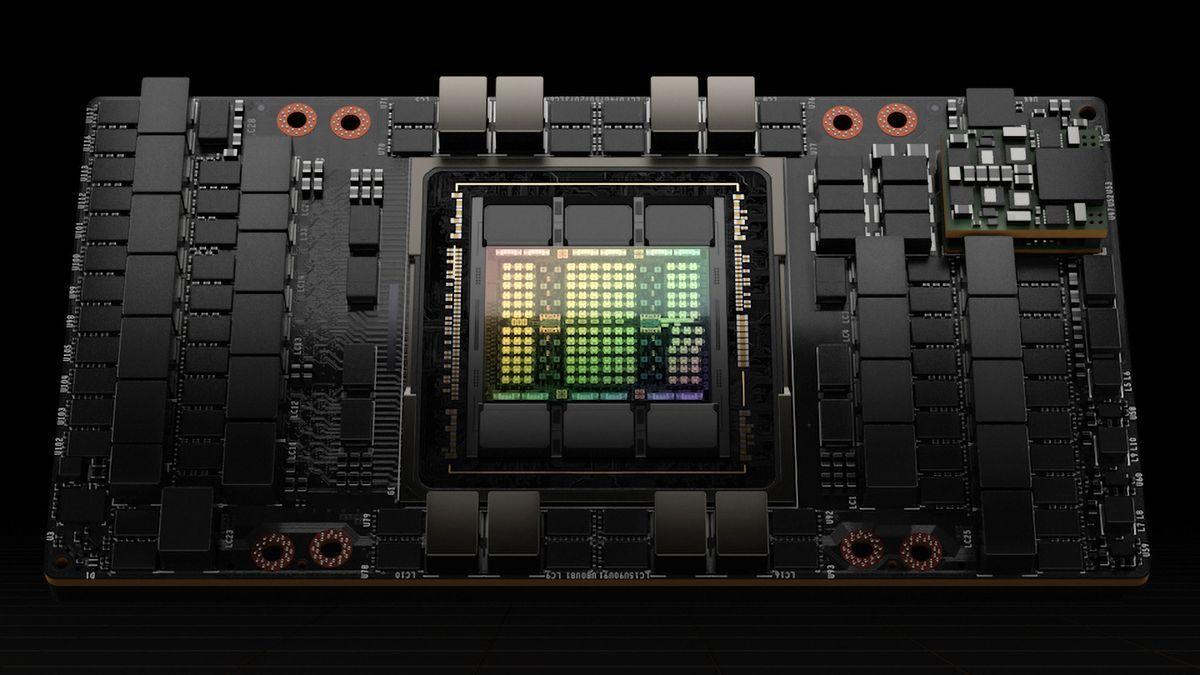Tencent Unfazed by US AI Chip Import Uncertainty, Reports Strong Q2 Results
3 Sources
3 Sources
[1]
Tencent doesn't care if it can buy American GPUs again
Chinese web giant Tencent doesn't mind if Washington doesn't let it buy more American GPUs, because it already has all the chips it needs. During the company's Q2 earnings call a financial analyst asked if the USA's recent decision to allow Nvidia and AMD to resume GPU sales to China will impact Tencent. Company president Martin Lau responded: "We do not have a definite answer on the import situation yet. There are a lot of discussions between the two governments." "From our own perspective, we do have enough chips for training and continuous upgrade of our existing models," Lau added. "We also have many options for inference chips." Tencent may not need to exercise those options. "We are executing a lot of software improvements in order to drive efficiency in inference so we can put more workloads on the same number of chips," Lau said. Lau's remarks are unwelcome for four reasons. One is that AMD and Nvidia hope to see revenue spikes once they are again allowed to sell into China. If a big client like Tencent isn't shopping, that could dent their ambitions. Another is that the Trump administration plans to take a cut of GPU sales to the Middle Kingdom. A third is that Tencent has hinted it can meet future needs for inferencing chips with products from sources other than US chipmakers. The fourth is that the Chinese company's optimization work suggests it plans to slow purchasing in the long term. Lau delivered more bad news for investors hoping to cash in on the AI boom, when asked about how AI investments are impacting Tencent's margins. "Depreciation cost from AI will continue to go up," he said. "But we continue to reap the benefits of AI. The issue is these two may not match each other completely, but both are moving in the same general direction." Those remarks suggest Tencent is not finding it easy to find customers who pay for its AI services. Earlier on the call, Lau said the company's public cloud business has decided to pursue business opportunities that aren't dependent on "the vagaries of the GPU supply situation." "Our cloud strategy is not dependent on GPU," he said. "We are also growing in CPU and database." One more kick for the AI enthusiasts out there: This is the third quarter in a row Tencent told investors it doesn't need more GPUs. Tencent remains in fine financial health, with Q2 revenue reaching RMB184.5 billion ($25.7 billion) and delivering 15 percent year-over-year growth. Net profit grew 11 percent RMB 64.8 billion ($9 billion). Average monthly users of its Weixin and WeChat social networks rose to 1.411 billion, annual growth of 40 million/three percent. ®
[2]
Tencent says US AI chip import situation unclear as governments negotiate
BEIJING, Aug 13 (Reuters) - Chinese tech giant Tencent (0700.HK), opens new tab said on Wednesday it lacks clarity on U.S. AI chip imports as Beijing and Washington continue negotiations, though the company maintains it has sufficient inventory for its AI operations. "We don't really have a definitive answer on the import situation yet. There are a lot of discussions between the two governments. We are waiting to see what exactly comes out of that," Tencent President Martin Lau said during a post-earnings call. The comments come amid ongoing tensions over advanced semiconductor trade between the world's two largest economies. Nvidia(NVDA.O), opens new tab's H20 chips, designed specifically for the Chinese market, have been at the center of recent regulatory scrutiny from both governments over security concerns. Lau said the uncertainty would not constrain Tencent's AI ambitions, noting the company has adequate chip supplies for AI model training and multiple deployment options for AI services. The Shenzhen-based company reported strong second-quarter results, with revenue rising 15% to 184.5 billion yuan ($25.7 billion), beating analyst estimates of 178.5 billion yuan according to LSEG data. Gaming remained a key growth driver, with domestic revenue rising 17% to 40.4 billion yuan and international revenue climbing 35% to 18.8 billion yuan. Marketing services revenue increased 20% year-on-year to 35.8 billion yuan, bolstered by the use of AI to enhance the targeting of adverts. Net profit for the quarter reached 55.6 billion yuan, surpassing analyst expectations of 52.3 billion yuan, LSEG data showed. Tencent has accelerated AI investments over the past two years, though capital expenditure has moderated recently. After spending 36.6 billion yuan in the fourth quarter of 2024 and 27.5 billion yuan in the first quarter, its capex fell to 19.1 billion yuan in the second quarter. Lau signaled a more measured approach going forward as the company seeks sustainable monetization from its AI initiatives and to "spend smartly". The company has developed its own large language model, Hunyuan, launching the latest "Turbo S" version in February. But Tencent has also embraced third-party models, notably integrating DeepSeek's technology across its platforms including WeChat, which has over 1 billion monthly active users. ($1 = 7.1756 Chinese yuan renminbi) Reporting by Liam Mo and Brenda Goh Editing by Bernadette Baum, Aidan Lewis, Alexandra Hudson Our Standards: The Thomson Reuters Trust Principles., opens new tab
[3]
Tencent says US AI chip import situation unclear as governments negotiate - The Economic Times
Chinese tech giant Tencent said on Wednesday it lacks clarity on US AI chip imports as Beijing and Washington continue negotiations, though the company maintains it has sufficient inventory for its AI operations. "We don't really have a definitive answer on the import situation yet. There are a lot of discussions between the two governments. We are waiting to see what exactly comes out of that," Tencent President Martin Lau said during a post-earnings call. The comments come amid ongoing tensions over advanced semiconductor trade between the world's two largest economies. Nvidia's H20 chips, designed specifically for the Chinese market, have been at the center of recent regulatory scrutiny from both governments over security concerns. Lau said the uncertainty would not constrain Tencent's AI ambitions, noting the company has adequate chip supplies for AI model training and multiple deployment options for AI services. The Shenzhen-based company reported strong second-quarter results, with revenue rising 15% to 184.5 billion yuan ($25.7 billion), beating analyst estimates of 178.5 billion yuan according to LSEG data. Gaming remained a key growth driver, with domestic revenue rising 17% to 40.4 billion yuan and international revenue climbing 35% to 18.8 billion yuan. Marketing services revenue increased 20% year-on-year to 35.8 billion yuan, bolstered by the use of AI to enhance the targeting of adverts. Net profit for the quarter reached 55.6 billion yuan, surpassing analyst expectations of 52.3 billion yuan, LSEG data showed. Tencent has accelerated AI investments over the past two years, though capital expenditure has moderated recently. After spending 36.6 billion yuan in the fourth quarter of 2024 and 27.5 billion yuan in the first quarter, its capex fell to 19.1 billion yuan in the second quarter. Lau signaled a more measured approach going forward as the company seeks sustainable monetization from its AI initiatives and to "spend smartly". The company has developed its own large language model, Hunyuan, launching the latest "Turbo S" version in February. But Tencent has also embraced third-party models, notably integrating DeepSeek's technology across its platforms including WeChat, which has over 1 billion monthly active users.
Share
Share
Copy Link
Tencent, the Chinese tech giant, remains confident in its AI capabilities despite unclear US chip import regulations. The company reports robust Q2 financial results and a strategic approach to AI development.
Tencent's Stance on US AI Chip Imports
Chinese tech giant Tencent has expressed a lack of clarity regarding the import situation of US AI chips, as negotiations between Beijing and Washington continue. During a post-earnings call, Tencent President Martin Lau stated, "We don't really have a definitive answer on the import situation yet. There are a lot of discussions between the two governments. We are waiting to see what exactly comes out of that"
2
3
.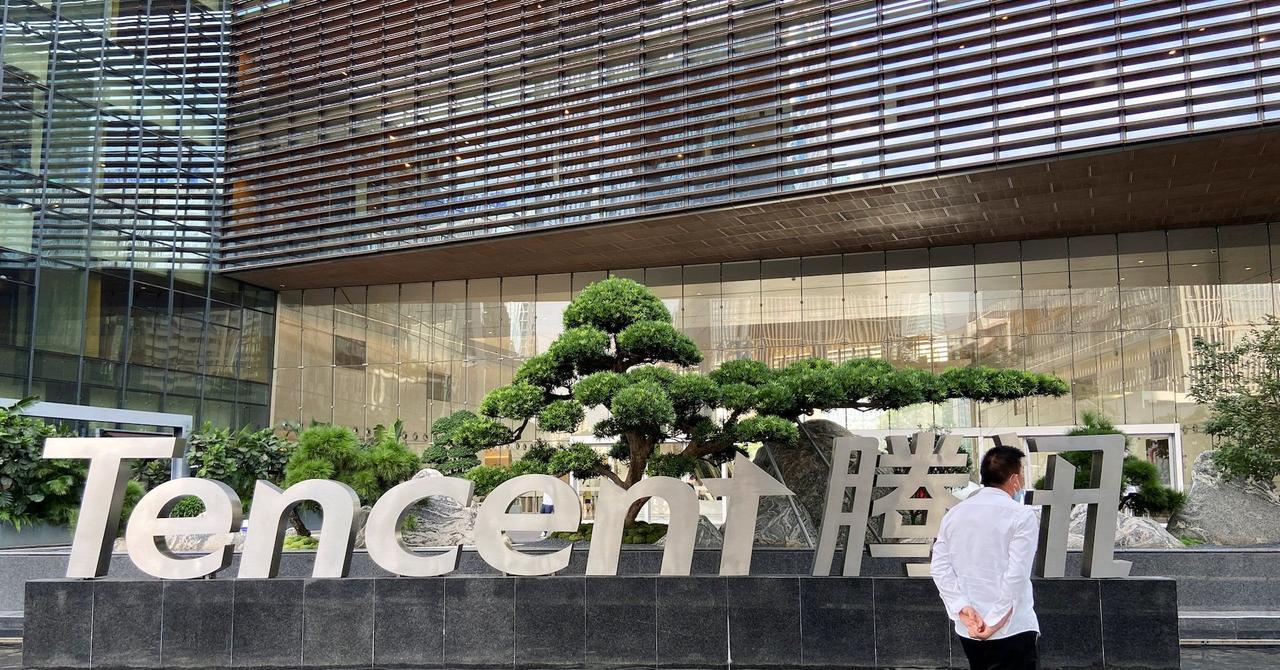
Source: Reuters
Despite this uncertainty, Tencent remains confident in its AI capabilities. Lau emphasized that the company has "enough chips for training and continuous upgrade of our existing models" and "many options for inference chips"
1
. This stance suggests that Tencent is well-prepared to navigate potential supply chain disruptions in the AI chip market.Strong Q2 Financial Performance
Tencent reported impressive second-quarter results for 2025, demonstrating the company's resilience and growth:
- Revenue reached 184.5 billion yuan ($25.7 billion), a 15% year-over-year increase
1
2
3
- Net profit grew to 55.6 billion yuan ($9 billion), surpassing analyst expectations
1
2
- Gaming revenue showed significant growth, with domestic revenue up 17% and international revenue climbing 35%
2
3
- Marketing services revenue increased by 20% year-on-year, boosted by AI-enhanced ad targeting
2
3
AI Strategy and Investments
Tencent has been actively investing in AI technologies, but recent trends indicate a more measured approach:
- Capital expenditure has moderated, decreasing from 36.6 billion yuan in Q4 2024 to 19.1 billion yuan in Q2 2025
2
3
- The company is focusing on sustainable monetization of AI initiatives and aims to "spend smartly"
2
3
- Tencent has developed its own large language model, Hunyuan, with the latest "Turbo S" version launched in February 2025
2
3
- The company is also integrating third-party AI models, such as DeepSeek's technology, across its platforms, including WeChat
2
3
Related Stories
Implications for the AI Chip Market
Tencent's position on AI chip imports could have significant implications for the industry:
-
Potential impact on US chipmakers: If major clients like Tencent are not actively seeking new chips, it could affect the revenue expectations of companies like AMD and Nvidia
1
. -
Alternative chip sources: Tencent's statement about having "many options for inference chips" suggests they may be exploring non-US suppliers
1
. -
Efficiency improvements: The company is focusing on software optimizations to maximize the use of existing chips, potentially reducing future chip purchases
1
. -
Long-term purchasing trends: Tencent's approach indicates a possible slowdown in AI chip acquisitions over time
1
.
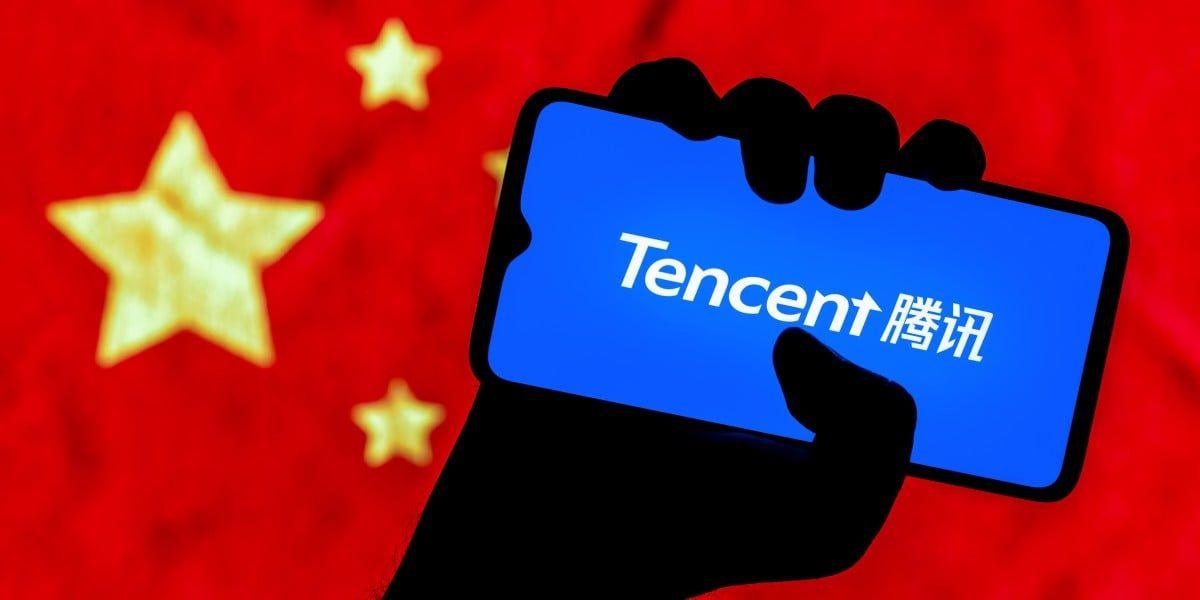
Source: The Register
Broader Context of US-China Tech Relations
The ongoing discussions between the US and Chinese governments regarding AI chip imports highlight the complex geopolitical landscape surrounding advanced technologies. Nvidia's H20 chips, designed specifically for the Chinese market, have been at the center of recent regulatory scrutiny from both governments over security concerns
2
3
.As tensions continue, companies like Tencent are adapting their strategies to ensure continued growth and innovation in AI while navigating the uncertain regulatory environment. The outcome of these negotiations could have far-reaching implications for the global AI industry and the balance of technological power between the US and China.
References
Summarized by
Navi
[1]
Related Stories
Tencent Boasts Strong GPU Stockpile, Adapts AI Strategy Amid US Restrictions
15 May 2025•Technology
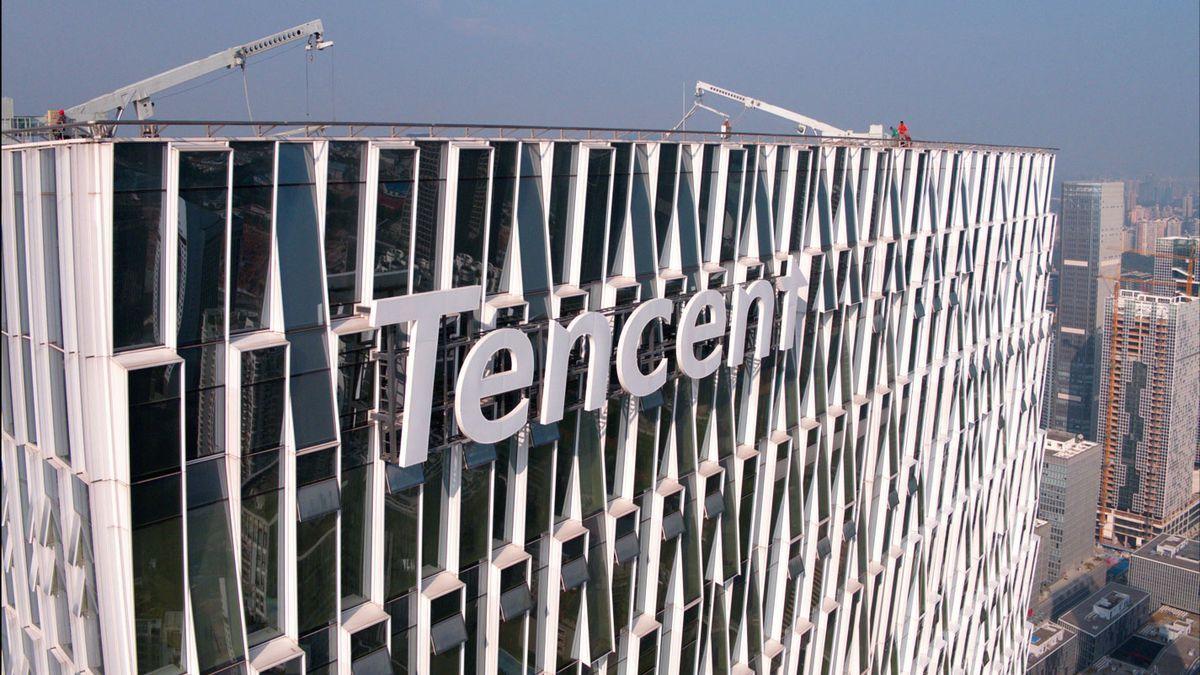
Tencent Slows GPU Rollout as DeepSeek Breakthrough Reshapes AI Landscape
21 Mar 2025•Technology

Tencent's Q1 Revenue Soars as AI Investments Yield Results in Gaming and Advertising
14 May 2025•Business and Economy
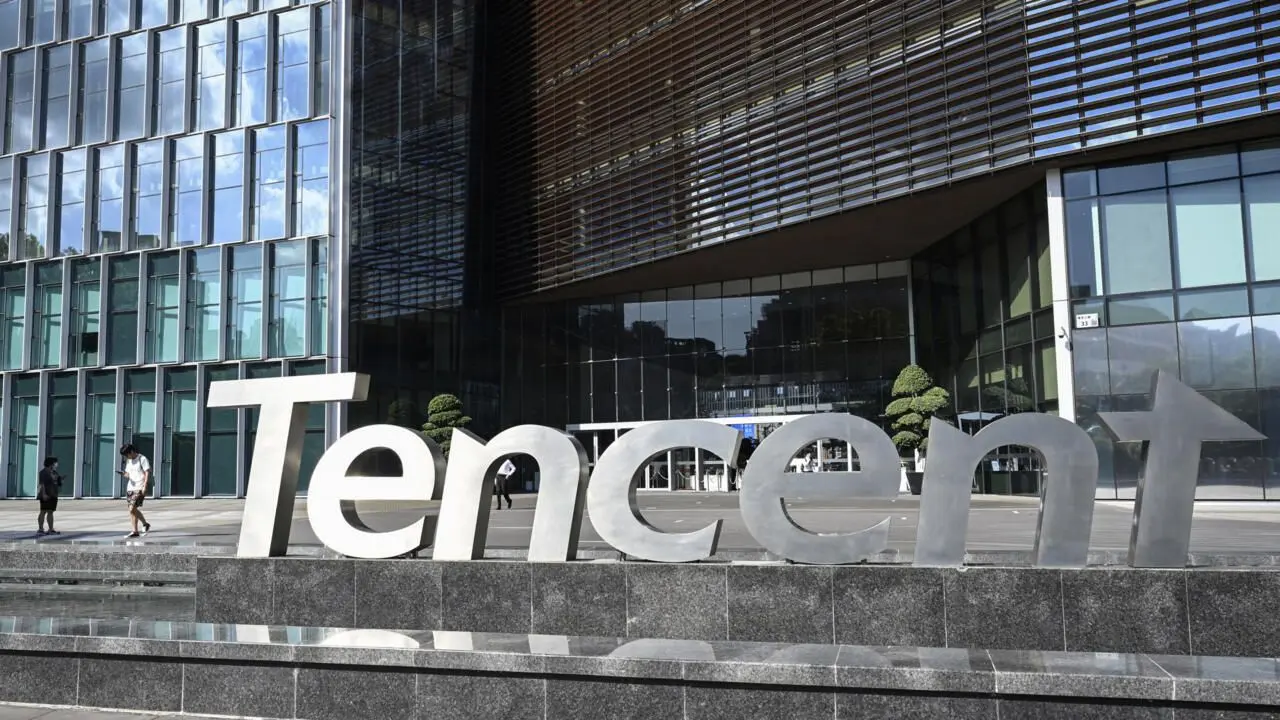
Recent Highlights
1
Pentagon threatens to cut Anthropic's $200M contract over AI safety restrictions in military ops
Policy and Regulation

2
ByteDance's Seedance 2.0 AI video generator triggers copyright infringement battle with Hollywood
Policy and Regulation

3
OpenAI closes in on $100 billion funding round with $850 billion valuation as spending plans shift
Business and Economy

